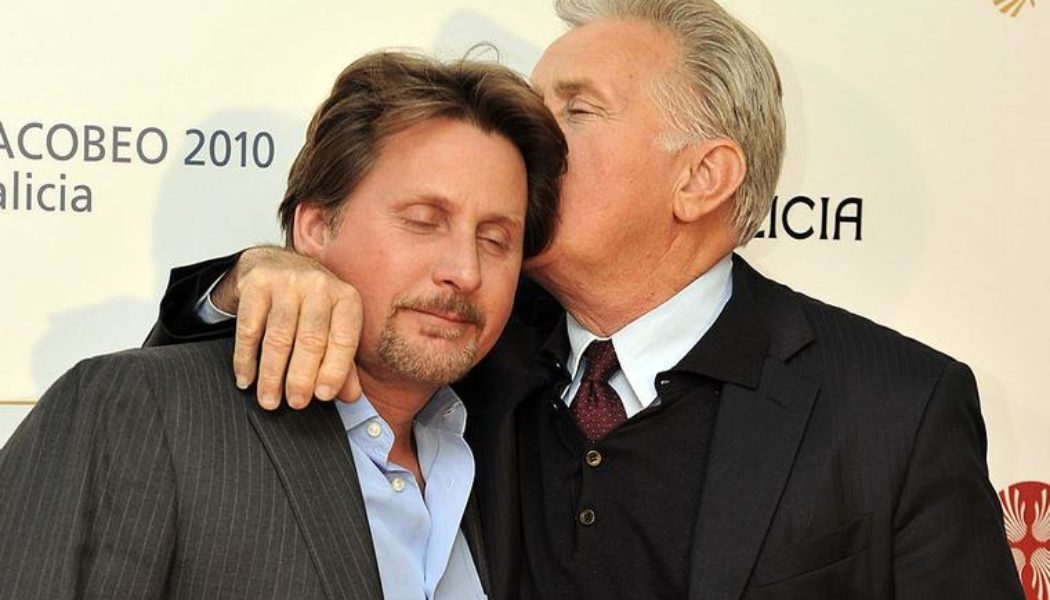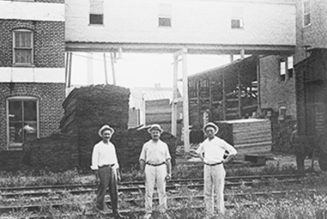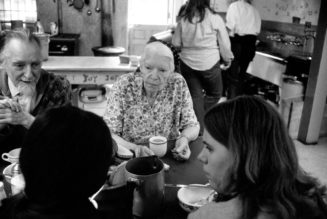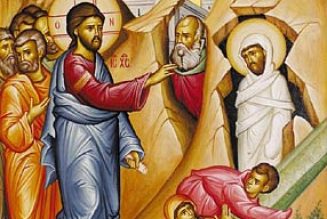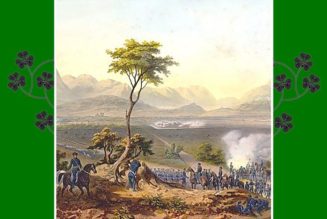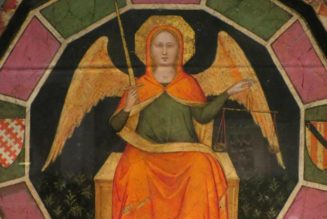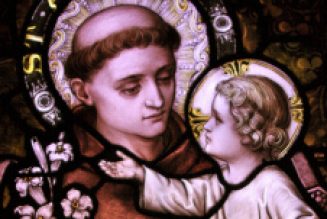
COMMENTARY: ‘Every pilgrimage is a journey to your own heart,’ actor Martin Sheen told the Register ahead of the film’s re-release May 16.
On May 16, Fathom Events is featuring a special one-day re-release of the acclaimed feature film The Way. Written and directed by Emilio Estevez, the story takes place on the more than 1,000-year-old pilgrimage route across northern Spain culminating at the Cathedral of Santiago De Compostela.
In 2018, 370,000 people traveled the Camino. And then COVID hit and the number of pilgrims cratered. The idea of the re-release is that it is time to put the global trauma of the pandemic behind us. It is time for people to consider setting out again on pilgrimage because sometimes we need to leave where we are to rediscover where we are meant to be.
The idea of going on a pilgrimage recalls a lovely line from Billy Wilder’s classic 1954 film, Sabrina: “Paris is always a good idea.” That is, the act of gathering up the shards of one’s self and going somewhere else in a pilgrim’s spirit is mysteriously renewing. Martin Sheen, who plays the main character, Tom, in The Way, noted to me in a recent phone interview, “Every pilgrimage is a journey to your own heart.” Pilgrimage theologian Piotr Rozak adds that in finding our own heart, we invariably find Divine Love too. “What a person discovers on the way to a holy place … is the experience of being guided by God” (Piotr Rozak, Contemporary Trends in the Theological Understanding of Pilgrimage, 2009).
The true pilgrim’s spirit is something other than the disposition of a tourist sightseeing. It is much more about the journey than the destination with the pilgrim consciously empty-handed, or empty-hearted, or empty-headed — wearily depleted of whatever stuff we need to keep walking through our life.
In The Way, Tom finds himself suddenly and shockingly empty of his own son, Daniel, who has died in an accident just as he was planning to set out on the Camino. Spurred by his intense grief, but without any real sense of what the Camino would involve, Tom decides to carry his son’s ashes on the pilgrimage the young man didn’t live to take. But very soon, Tom realizes it is the meaning of his own life that’s stalking him on the journey. It is the ghost of Daniel who points out in an early flashback in the film that Tom is living a shallow life of calculated self-preservation, noting, “You don’t choose a life, Dad. You live one.”
The Way is a welcome transcendent chapter in the lexicon of “road movies.” The heart and fascination of the genre is a fixed and formidable landscape married to a random stream of compelling characters who together put pressure on the protagonist to learn and grow. So too, The Way offers us the beautifully shot, stunning north-central coast of Spain — and then a genial Dutchman with food issues, a chain-smoking, post-abortive Canadian woman, a garrulous Irishman with writer’s block, and a slew of quirky other passers-by whom our protagonist, Tom, would never choose to associate with under any other circumstance. Sheen expressed the challenge for Tom’s character in the movie: “Will he be receptive and open enough to realize that the best way to reach himself is through community?”
Indeed, the movie is clear that the key to spiritual growth on pilgrimage is embracing mutual dependence with the other pilgrims. These are the people the Lord of the Camino chooses for us. In the film, we first meet Tom keeping company with a safe group of colleagues on a California golf course. It sets up a haunting juxtaposition with a scene at the end of the film where Tom stands on the shore in Santiago de Compostela with his new Camino friends, who now know him at his most profound level.
Sheen noted, “We are limited in our personal growth by the folks we choose to associate with. But on the Camino, pilgrims find themselves thrown together. By the end of the movie, the characters have learned to see the best part of our real selves through each other.”
Another gift of pilgrimage in Estevez’s vision for his movie is the value of time itself. The pacing of the story is slow — but appropriate to the theme. It makes for refreshing viewing amid most current films that are paced so fast that few have any real moments. In The Way, there is time given just to watch the characters walking.
Sheen remarked to me that pilgrimages offer a reset of our inner clock away from the frenzy of our work-a-day lives and into a more timeless rhythm. “You start listening to your innermost part. You hear your heartbeat. The rhythm of your steps. And then your eyes focus on the scenery around you, and some of it is stunning, the beauty. Pilgrimage really opens us to creation.”
Indeed, probably the central character in The Way is less Tom and more the landscape that is the setting for the Camino. I have a friend who is from Asturias, which is a city right smack in the middle of the pilgrims’ path on the north-central coast of Spain. When we first met, she introduced herself by saying, “I am from the most beautiful place in all of Spain. Maybe the whole world.” I chuckled at the hometown pride. But then I went there and stood looking at a medieval monastery perched in a lush coastal valley. I nodded to her in awe, “You were right. This looks like heaven to me.”
One of the strong fascinations of the film, and of the Camino itself, is the miracle of Spanish hospitality. In our cultural moment which seems to grow colder and less civil every day, there is one place on earth that actually identifies itself by taking on the soul-winning sacrifice of hospitality. The people who live along the Camino have been hosting pilgrims for a thousand years.
Sheen spoke about how everyone on the cast and crew was struck by the welcome they received all throughout filming. “For these people, every day is the posada (inn). They never know when Jesus and Mary are coming. ‘Who’s that pregnant woman?’ That could be Jesus — we’d better keep the light on for them.’” It’s a good question of whether, in God’s Providence, Spanish hospitality made the Camino possible, or if the Camino made the Spanish hospitable. But in the end, Sheen observed that it is impossible to imagine this remarkable ritual happening in any other place: “They are inseparable.”
Watching The Way made me want to go on a pilgrimage again. It reminded me of one of my life’s pivotal experiences, when I went to Fátima years ago. I thought I was just there to do research on a screenplay. But standing on the fringes of the huddled crowds who still come together on the 13th day of every month, holding a candle and staring at the famous little holm tree, I discovered that I was empty too, and I was surprised to find comfort and, yes, even peace. The movie reminded me of that.
The Way is a good solid drama with a supernatural subtext. It is well-crafted and thoughtful — a film that creates a yearning for a deeper life, and offers the consoling assurance that whenever we set out to find God, he is already there, just ahead, waiting for us.
